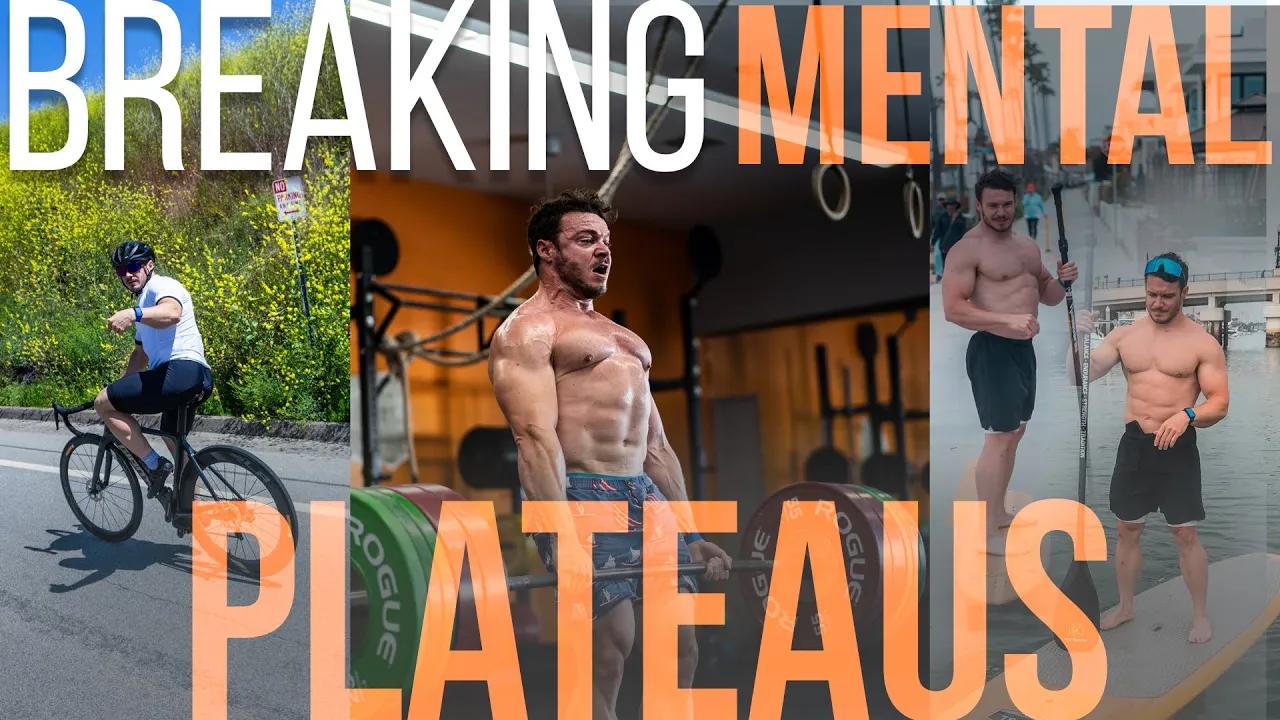Insights and recommendations powered by Slated AI Coach
You don't have to lift super-heavy and max out every time to get strong


Okay, let’s start with the obvious: if you’re trying to work up to a 200kg deadlift, training for a powerlifting competition, or trying to look like a beefy bodybuilder, 20-minute HIIT sessions aren’t the most efficient way to achieve that. In fact, you’re definitely going to need some specialised training for those things.
However, if what you’re looking for is to simply get stronger—to feel more in control of your body, to do your first (or twentieth) pull-up, to feel more rooted and powerful in your tennis game, to not be out-muscled in your weekly soccer game, to be able to more effortlessly lift your kids up and carry them around, or to just show those heavy dumbbells who’s boss—this article is for you.
Most people know that to get stronger, you need to lift heavy things. Does this mean you need to go as heavy as possible and break personal records at every workout you do? The short answer is no. Here’s why:
It’s impossible to max out every time
Even if you could push to the limit every time you train, it wouldn’t be helpful. The magic actually happens when we recover. After we dose the body with heavy loading, we usually need at least a couple of days to repair in order to grow stronger. Trying to hit your maximums every single day means you won’t get the time to repair, which will actually get in the way of getting stronger.
What's more, you won’t actually be able to hit true maximums. This doesn’t mean you shouldn't train at all when you're not ready to go all out. Submaximal training is important to keep body fat in check, to practice technique, and for active recovery.
Sustainability is key
Lifting heavy weights can put quite a lot of stress on your central nervous system, which is actually what makes it so good for getting you stronger. This central nervous system fatigue is part of the reason why on some days, those 10kg weights seem way heavier than usual.
Lifting heavy too often can be overly taxing in the long run, and can lead to a lowered immune system and increased risk of injury from overtraining, so a good place to start would be to push yourself to lift your heaviest weights just once (or twice, if you’re chomping at the bit) per week, and adjust according to how you feel.
Remember that good exercise should be hard when you’re doing it, but once you’re done with it for the day, it should feel like a complement, not a hindrance, to the rest of your life.
You don’t need to lift super-heavy weight to get strong
It’s possible to gain strength and build muscle with light to moderate weight, as long as you hit the right intensity. Furthermore, the volume of reps is much less important than doing them with control and engagement. For example, if you're doing overhead presses, instead of simply letting the weight drop with gravity on the descent, think about gripping the weight tight and slowing things down, as you engage your core and butt to stabilize.
This root of this is 'time under tension', and it builds, lean, dense, functionally strong bodies. Ever see the arms on a gymnast or the legs on a volleyball player? You can build beautiful, strong bodies by focusing on consistency and athleticism. Leave the maximal lifting for olympic weightlifters and powerlifters!
*****
Putting all this into practice
- Dose your strength work appropriately. If you're training using the Ritual FIT app, take a moment to read the recommended strategy for each workout. If you’re in the gym, listen closely to the advice from your coach. Some days, the focus is on speed and heart rate, and other days the focus is on strength. By following the recommendations, you be able to dose your strength work appropriately so you get enough to get strong and resilient without overdoing it. For long-term health and happiness and general fitness, you shouldn’t feel like you need to lift heavy weights or reps more than once or twice a week.
- Listen to your body. Use the easy first set to gauge what weight you should be using today. On the days where you feel strong, you’ll know it, and you’ll know that this is a day you can push to hit the right intensities to stimulate muscle growth and improve your strength. On other days, you’ll know that you won’t be able to hit the right reps and weights because everything feels heavier than usual. Trust that over time, the signs will get easier to decipher.
- Focus on exercising with control. In your next session, try to see how much you can get out of each rep you do as you focus on tension. Instead of focusing only on the number of reps and amount of weight, try to maximize engagement of your whole body, and don't slack off on form—whether you're in the app or the gym, pay attention to the form cues you hear!
- Keep it simple. If you used to be able to do 5 push-ups, but now you can do 7, congratulations—you’re getting stronger! Don’t over-complicate things—celebrate the small wins, enjoy the process, and above all else, stay consistent!

Ian Tan is the Co-Founder of Ritual. He’s got an MSc in Strength and Conditioning, a background in psychology, and is a Certified Strength and Conditioning Specialist (CSCS).


